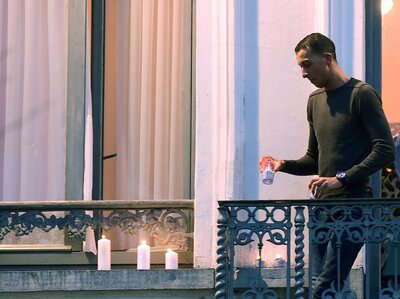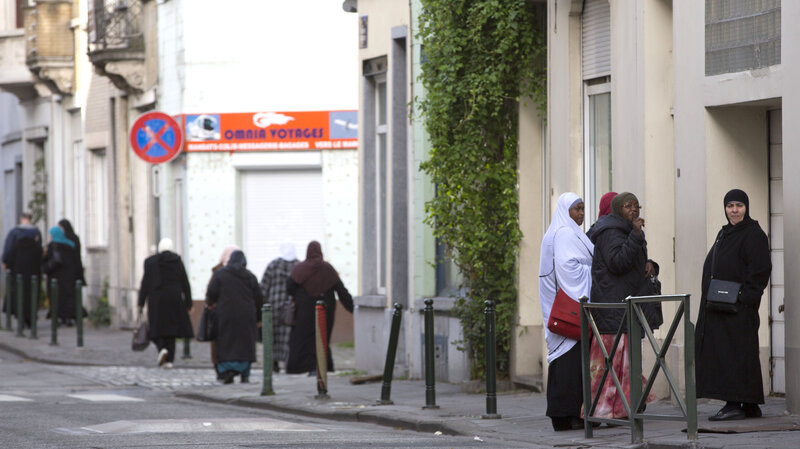In Worst Attacks, Terrorists Often Have Fraternal Bonds
By Dina Temple-RastonIn Worst Attacks, Terrorists Often Have Fraternal Bonds
By Dina Temple-Raston
It isn’t an accident that a roster of the most recent high-profile terrorist attacks — the Boston Marathon bombings, the murders at the Charlie Hebdo editorial offices, last month’s rampage in Paris — happened in part at the hands of young men who were brothers.
Intelligence officials say that small terrorist cells made up of relatives or close friends are the hardest to spot. They are not only difficult to infiltrate, but because people are living under the same roof, it is also difficult to pick up signs of their planning or their communications.
To hear Mohamed Abdeslam tell it, his two brothers, Salah and Brahim, began to change about six months ago. (Mohamed had no role in the plot — Salah and Brahim are suspected of being central players.)
They started praying more, and announced to the family that they had quit drinking.
But that, said Mohamed, seemed like something to celebrate. He thought his brothers were just maturing, he said — that they had started to take their religion, and their lives, more seriously.
“When your brother tells you that he’s stopped drinking,” he told Belgian television, “it’s not a change that says something is wrong.”
But in hindsight, the change appears to have had at least some connection to the Nov. 13 attacks in Paris, in which terrorists opening fire on cafes and a concert hall and detonating explosive vests killed 130 and wounded hundreds more.
Police now say Brahim Abdeslam died when he detonated a suicide vest inside a cafe that night. His brother, Salah, is the subject of an international manhunt; the last time French officials saw him, he was crossing the border into Belgium.

An Intense Feedback Loop
Brothers and terrorism have gone hand-in-hand for years. Reid Sawyer, who used to run the Combating Terrorism Center at West Point, said foreign fighters and jihadists often had close ties to other family members who had taken the same path, going back to the beginning of the Iraq War.
“When you find one person that radicalizes in a family, it is a great predictor that somebody else in that family — either immediately a brother or a cousin — is likely to participate,” he says. “And that’s exactly what we’ve seen in this Paris attack.”
The process of radicalization — whether it is a group like ISIS or a white supremacist group like the Aryan Nation — is a fairly intense one; when family dynamics are added into the mix, it is even more so.
Family members not only feel compelled to show they are committed to a particular ideology, but there is also an extra pressure to prove oneself — to show a brother or a cousin or other relatives that they can count on you. The feedback loop makes for an intense commitment.
Rik Coolsaet, a professor of international relations at Ghent University in Belgium, who has been studying radicalization there — and in Europe more generally — sees much of this radicalization through the lens of sociology.
“It is not new,” he says. “In the study of terrorism, it is very often the case that you are not, as an individual, radicalizing all by yourself. Often it is a case that you radicalize due to small-group dynamics — kinship and friendship bonds.”
And that’s what he says happened in the run-up to the Paris attacks.
His research suggests that people don’t initially embrace extremist groups because of their ideology. Instead, he says, what’s more important is whether their friends or family members already have joined.

“This might be a bunch of guys in my neighborhood, this might be family members,” he says. “And so it is this dynamic that pushes you forward on this road, on this journey to violent terrorism.”
In the case of the Paris attacks last month, friend and family ties inspired eight suicide bombers and gunmen to fan out across the city, and authorities are still searching for others who might have provided logistical support.
Neighborhood Bonds
The Abdeslam brothers lived in a Brussels neighborhood called Molenbeek. Many residents are from North Africa, and quite a number of the Nov. 13 attackers had a connection to Molenbeek, or to other neighborhoods like it all over Flanders, the Dutch-speaking northern province of Belgium.
Molenbeek doesn’t look particularly sinister, with its cluster of low-slung apartment buildings and its small shops and awnings decorated with Arabic script. But though it’s a short two-stop subway ride to the central square in Brussels, Coolsaet says the neighborhood might as well be a world away.
“These are neighborhoods where it is difficult to live,” he says, “where you feel an atmosphere among youngsters of no future. They think they will never be accepted into Belgian society.”
That makes these young men particularly vulnerable, he says, to messages like those ISIS sends that suggest they can belong to the worldwide ummah — community — of Muslims.
In fact, the man thought to have organized the Paris attacks was from Molenbeek as well.
Abdelhamid Abaaoud is thought to have plotted terrorist attacks in Europe for over a year. His early attempts had fizzled. Police had raided a safe house in the Belgian city of Verviers, where he had been stockpiling weapons and explosives, earlier this year.
But this time it was people from his old neighborhood, and Belgians he’s thought to have fought with in Syria, who helped level the worst terrorist attacks on the continent in a decade. Abaaoud died in a police raid on an apartment outside Paris several days after the Nov. 13 rampage.
French officials revealed that the apartment they raided wasn’t just anyone’s — it had a family connection, too. It belonged to Abaaoud’s cousin, Hasna Aitboulahcen. She was killed in the raid, along with Abaaoud and another man who has yet to be identified.
Aitboulahcen was known as a party girl around Paris. Her friends say that she, like the Abdeslam brothers, stopped drinking and started praying about six months ago.
— via NPR